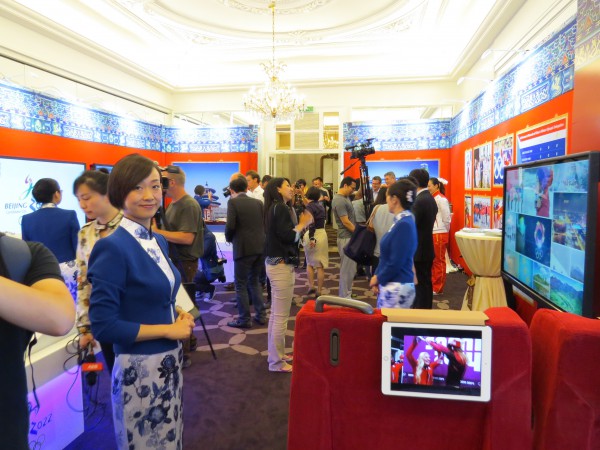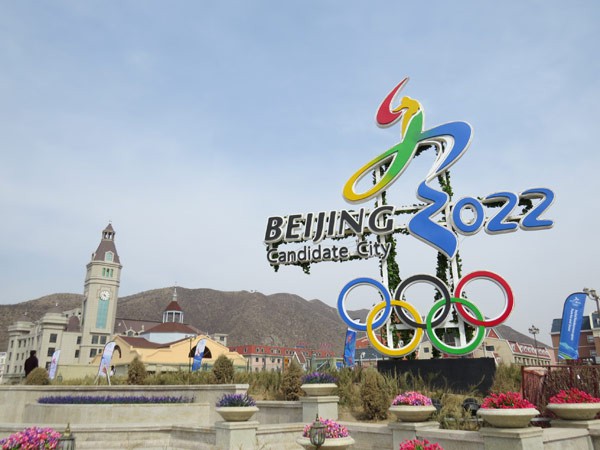Reporting From Beijing, China – On the second day of the International Olympic Committee’s (IOC) Evaluation Commission visit to Beijing, Alexander Zhukov and his team of experts headed to the mountains to view the sites of two critical venues to be built if the Chinese Capital hosts the 2022 Olympic Winter Games.

If Beijing is chosen as host city, Yanqing, a district about 75km Northwest of Beijing will be the site for Alpine Skiing, Bobsleigh, Luge and Skeleton. Plans require the new construction of the National Alpine Ski Centre, the National Sliding Centre and an Olympic Village – creating a stand-alone cluster that will be supported by a media centre located in a walkable, temporary facility.
Upgraded transportation links to Yanqing are already planned and underway. A new expressway will be built to improve motor vehicle travel times as part of a plan to meet current traffic needs. The National High Speed Rail Network is being expanded and a link to Yanqing is due to be completed by 2019 in time for the region to host the World Horticultural Exposition.
Already planned by the National Development Reform Commission, the rail link will offer 20 minute travel times between the Beijing and Yanqing clusters. A further rail segment also under development will offer transfers from Yanqing and snow cluster Zhangjiakou in 30 minutes. The Beijing to Zhangjiakou trip will take 50 minutes.
No cost for the high speed rail project has been offered by the bid committee as it is part of an overall, ongoing government project. Bid experts say they have previously discussed the rail project with the IOC in Lausanne and that it meets all requirements, including Agenda 2020. They claim the stable, safe and reliable project does not pose any financial risks.

All venues, including the Alpine facility that has strict vertical drop, length and gradient requirements, have received approval from their respective sport federations.
The themes discussed Wednesday were accommodation, transport, media, and sports and venues.
Ms. Xiang Ping, Deputy Director of Beijing Municipal Foreign Affairs Office, said “the IOC requirement for accommodation can be fully satisfied with our existing room supply.”
“As there is no need for new hotels to be constructed for the Olympic Winter Games, the accommodation function will contribute to making Beijing 2022 truly sustainable and economical.”
With the air pollution index reaching 192 at the Olympic park Wednesday evening – a reading considered “unhealthy” and almost eight times greater than safe levels – there were renewed concerns about how the quality of air will be protected and improved in the run up to the Games.
Jiandong Zhang, Beijing Vice Mayor and Vice President of Beijing 2022, explained that there are over 200 blue sky initiatives underway and new laws to protect the air.
“All in all we have the confidence, we have the capability and also we have the measures in place to constantly improve the air quality in Beijing,” he said.
“By 2022 we will demonstrate to the whole world the achievements in our air quality control methods.
“Yanqing and Zhangjiakou already have good air quality and is very good for our outdoor sports.”
On Thursday the IOC Commission will visit snow venues in Zhangjiakou; the full visit will wrap up on Saturday.


